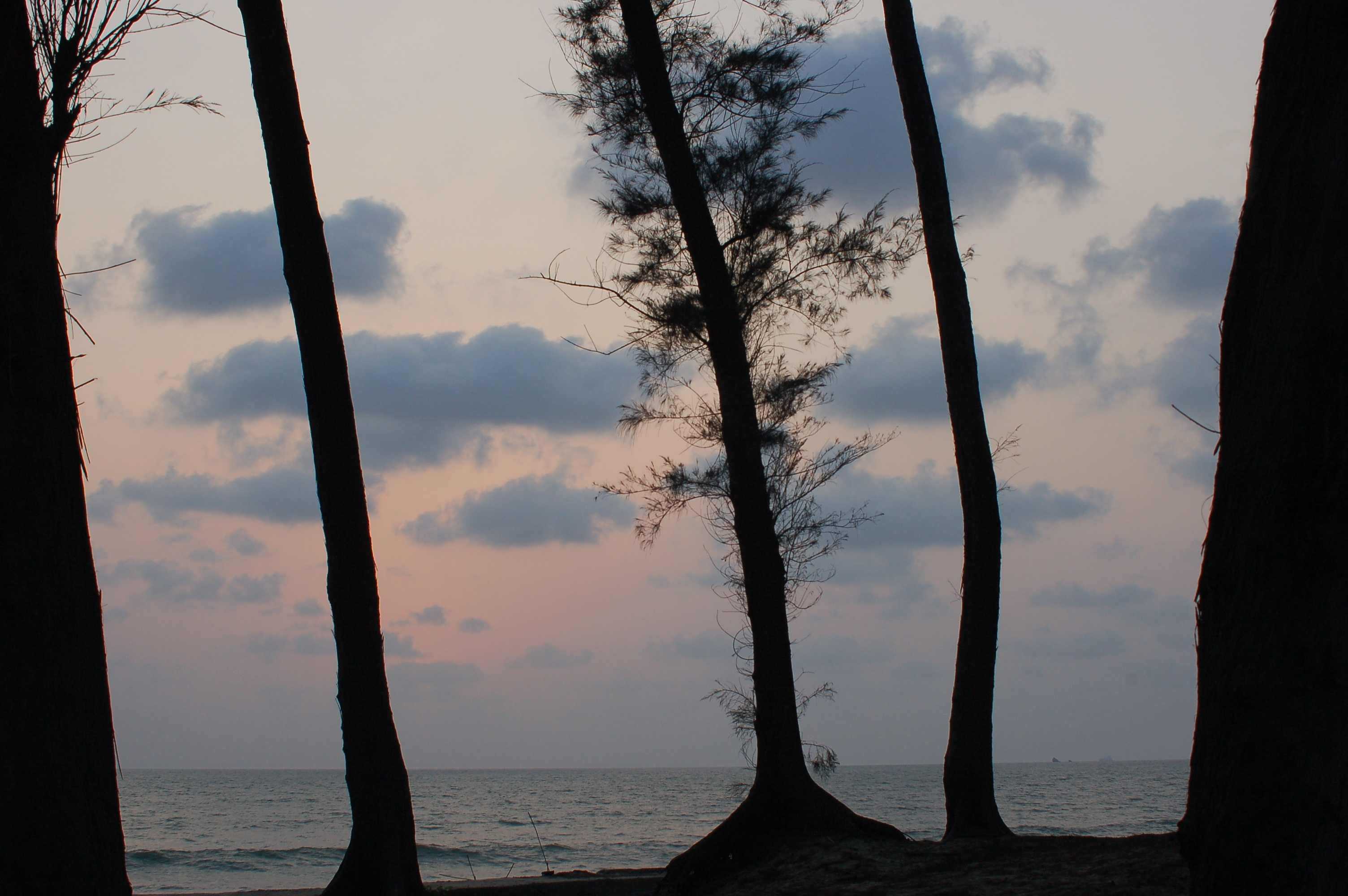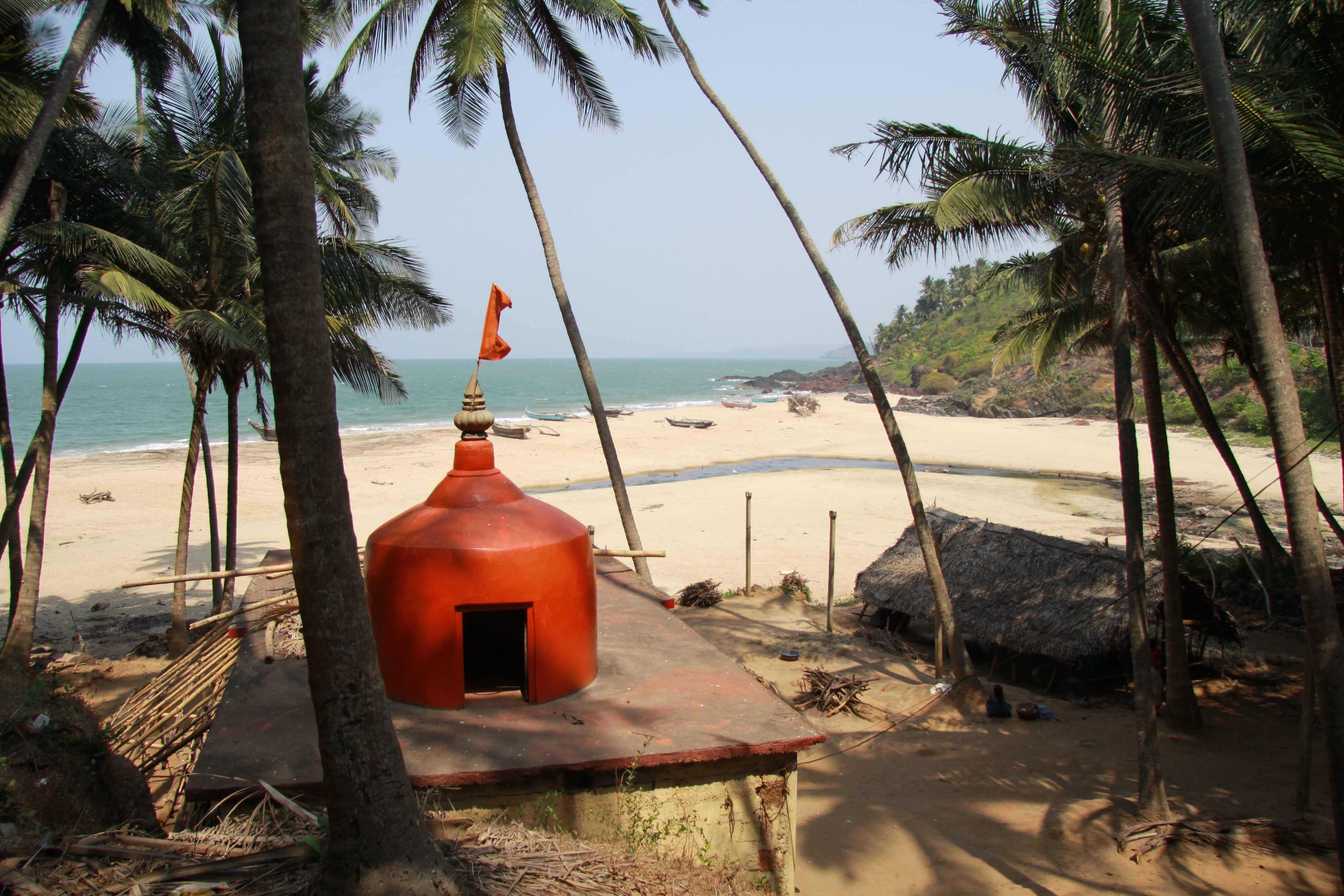When I think of Kolis, I remember that distant morning when Rajaram Mahulkar first took me to discover flamingos. At that time Mahul was a sleepy village that had just woken up to the fact that beautiful birds with wings of fire had landed on its shores for the very first time. Armed with a pair of binoculars, we set sail in Rajaram’s fishing boat and in a while saw them in the distance. An endless line of pink feathers feeding on the blue-green algae along the mangroves of Mahul.
Rajaram was so enamoured by the spectacle that he became the local guardian of these winged visitors, reporting for the past 18 years any harm that’s being done to them or to their fragile habitat. And he has remained my friend too; because when a Koli makes a friend, he makes it for a minimum of a lifetime.

Kolis believe in living in the moment. So they celebrate life, singing their famous Koli songs and dancing to their own tune as if there’s no tomorrow. This is particularly poignant because when a Koli ventures into the sea, there’s really no guarantee of him seeing the dawn of tomorrow. For him every day is a fight for survival, battling the vagaries of the sea, miles away from the safety of the shore.
Rajaram makes it a point to invite me for their annual Koli Utsav, which I never miss. Because for me it’s the very celebration of the transient nature of life itself.
I set out from Mumbai to meet more of Rajaram’s ilk along the Konkan coast. It was a long journey of over 600 kilometres along an unexplored coast dotted with colourful fishing boats bobbing in the sea.
My first halt was Versoli, an unknown village tucked away between the known villages of Kashid and Alibaug, about a 100 kilometres from Mumbai.
It’s at Versoli that I discovered that every fishing boat is so uniquely painted that it becomes the signature of the owner. The beach here is secluded as the only access is through the meandering lanes of the Koliwada. As you walk to the beach, you see fish being dried to ensure a steady supply when fishermen refrain from going to the sea during the monsoon. This vacation ensures two things: safety for the fishermen during the treacherous monsoon; and ample time for the fishes to multiply as they only breed during that time of the year.
As you gaze into the sea at Versoli, you see the Kolaba fort on one side, and the twin forts of Khanderi and Undheri on the other. When I asked a fisherman if he could row me across to one of the forts, he flatly refused. The reason being, a large shoal of shrimp has just been sighted in the sea and all the boats were rushing there in a state of absolute emergency. And I knew that when it comes to making important decisions in life, the Kolis have their priorities absolutely clear.

Korlai was a different experience. Here was a community of about a thousand fisherman who spoke a dialect unique to them: Portuguese Creole. It’s a dialect that has become extinct in the erstwhile Portuguese colonies like Daman & Diu. But it has thrived here for 260 years, thanks to their insulation from the rest of the world. Hope this dialect, and the other 1427 dialects spoken in our country, survive the onslaught of mainstream linguistic influences. Because, as a famous linguist mourning the death of an Andamanese dialect said, ’When a dialect becomes extinct, humanity loses a part of itself.’
Despite the dialect that makes them unique, the fishermen of Korlai share universal similarities with the rest of the fishing community along the Konkan coast. Their faith in the Goddess of the Sea, or Jal Maayee as they lovingly call her, who they believe will bring them back safely from the fickle-minded sea. And the love and care with which they build their boats, and keep them in a state of permanent sea-worthiness.
Korlai is surrounded by the sea on three sides, and the small beach for them is an extension of their village. Which is what all beaches were; till picnickers usurped them as their own. Here, in Korlai, there is not a footprint that’s not of the fishermen and their families. And looking at its pristine nature, I prayed that if ever anyone discovers this beach and treads on it, let it be as a guest. Fully aware that it should be left as he or she had first found it. Pristine.
Kelus, near Vengurla on the Southern tip of the Konkan coast, was the next stop. Here I saw an auction for the first time, where a fisherman proudly laid bare his catch of the day and offered it to the highest bidder. This fishing village is situated between the river and the deep sea. And during monsoon, the river is in spate and the sea is in fury. In preparation for the onset of monsoon, I saw large bunds being built to break the gigantic waves that lash the seashore. But, in the past, such efforts have only given a symbolic reassurance to the fisherfolk of Kelus. The sea, which seems to have a mind of its own, eventually has its violent way.
Here I also witnessed the intricate art of making large dragnets. The way the dexterous hands of the fishermen weave a net out of nothing reminded me of Samuel Johnson. He had once infamously described a fishing net as ’many holes that have been stitched together.’

At the nearby fishing village of Nivti, the climax of my journey was awaiting me. An affable fisherman named Arvind Maittar had agreed to take me for deep sea fishing.
When I reached there, the uniqueness of the beach caught my attention. Where the beach ended, a creek began. The fishermen moored their fishing boats in this creek, each one in his allotted parking lot. Arvind told me that the fishermen of Nivti go fishing only in the night as they believe that the fish can see a dragnet during the day and will diligently avoid it. So he had warned me that we may not catch any fish as it was only late afternoon. We set sail from the jetty, and soon the safety of the shore looked distant. To take my mind away from the fear of the unknown waters, Arvind pointed to the Nivti fort floating in the sea. Next to it was a pair of dolphins diving in and diving out at will. Like the sea, they were unpredictable. You just couldn’t guess where they would appear next.
Arvind then showed me a rocky island in the sea and told me the story of Bandaar Kada. There are massive caves in those rocks, both above and below sea level, where thousands of swift birds nest. A decade ago, some outsiders got wind of it, and the word spread with the sea breeze. And then started the wanton destruction of the nests that were made from the saliva of these birds. And tonnes and tonnes of these nests were smuggled into China and other countries in the Far East where a Swift Nest Soup is a cruel delicacy. Local fisherman from Nivti reported this to the authorities and a raid by the Wildlife Department put a stop to this gruesome act. Today, regular monitoring is done by both the local guardians of these birds, along with naturalists and wildlife officials.
As the boat entered the deep sea, Arvind and his friend picked up the huge dragnet from the bottom of the boat, and slowly opened it out. When it got entangled, he patiently undid the complicated knots. Then in a choreographed move, they cast the net and waited, and waited, and waited. As I looked around, I could only see water, water, everywhere. An inexplicable fear came over me; and I felt helpless and humbled by the power of the elements. Suddenly the boat became a little unsteady, and our hearts missed a combined beat. Arvind calmly told me it’s time to turn back. He and his friend quickly pulled up the net, and as he had predicted, there was no fish in the net, except a single, slender fish called the silver fish. Since it made no sense to carry this lone fish back with us, Arvind in a gesture of magnanimity threw it back into the sea. For it to die another day.
And as the dark, pre-monsoon clouds gathered ominously in the skies, and the wind picked up a frightening force, the helpless boat started tossing and turning in the sea. With a prayer on his lips and a steely resolve in his heart, Arvind rowed me back to the safety of the shore. To live another day. And to tell this tale.
